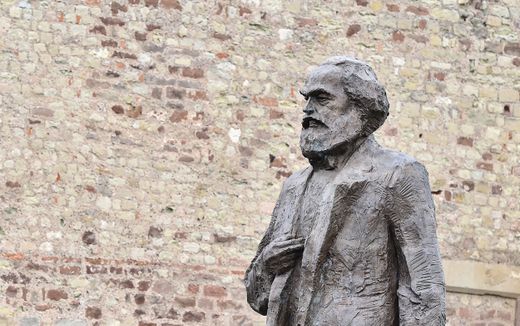Can humanism give dignity to every person?

Beauty and dignity are closely related. But where do they come from? Photo AFP, Robert Laberge
Christian Life
All people are equal, no matter which race they are from, how they identify sexually and whom they love. That is the humanistic idea that schools nowadays teach. However, humanism does not actually provide a solid basis for human dignity, Cédric Placentino argues.
Stay up to date with Christian news in Europe? Sign up for CNE's newsletter.
Read this, straight from a school book:
Humanism is a way of thinking that emphasises humanity, and sees respect for people as the most important value. Humanism emphasises the individuality and dignity of each person and the right to the greatest possible freedom that does not limit the freedom or rights of others. The humanist way of thinking is similar to that of many religions, but humanists do not generally rely on religious sources of information.
This is a definition of humanism in a textbook for Finnish high school students. Well, at first glance, who would dare to stand up against ideas such as individuality, human dignity or freedom? Everyone has the right to be treated as an individual. Everyone has the right to dignity and independence. We are all equal, are we not? Are these concepts not at the very heart of our Western civilisation? And is this not why it continues to attract people from other countries in search of freedom and prosperity?
The definition of the Finnish textbook suggests that humanists see their own philosophy as the real reason behind all the positive developments that Western society has experienced in recent centuries. As a consequence, God has nothing to do with these developments. The humanist way of thinking is similar to that of many religions, but humanists generally claim not to rely on religious sources of information.
Sources
What humanists mean by “religious sources” are all sources that appeal to the supernatural. This excludes the Bible because, according to humanists, it is based on supernatural beliefs that cannot be demonstrated rationally.
And so, humanists can confidently ask people who believe in a higher reality this rhetorical question: “Why should you impose your supernatural presuppositions on reality? We do not need the supernatural to define individuality, dignity or freedom. Human reason is sufficient.” This seems unbeatable...
But the fact that humanists reject Christian beliefs does not mean that they live without beliefs. Humanists cannot escape the rule: they, too, must stand on a confession of faith to give meaning to reality.
The fundamental humanist belief is that there is no reality outside this space-time. Or if such a reality exists, we know nothing about it. But whatever it is, such a reality does not influence our present life. In short, humanists live with the presupposition that this world is all that exists. There is no life after death, no God, no Last Judgement. Having thus established their creed, humanists believe they can define individuality, dignity or freedom. But can they really?
Of course, humanists cannot prove that this world is all that exists. This is a belief, not a proven reality. But their problems do not end there. How can humanists prove that this world exists in the first place? They would reply: “That’s easy to answer: all my senses perceive this world. My reason can interpret this world.” But why couldn’t this world be an illusion? Maybe the humanist’s sense perception and reason have misled him since he was born.
Yet, the humanist’s problems go even further. Not only is he unable to prove that this world exists, but he also cannot prove that he himself exists. This is why people like Buddha chose to conclude that everything was an illusion, including himself. And no humanist has been able to refute such a proposition. Having thus exposed the humanist’s insoluble problems, how can he then believe that he can define individuality, dignity or freedom? To define these terms, the humanist must appeal to transcendent concepts, such as good and evil. Indeed, to define dignity, the humanist must be able to define what is good and evil.
But having rejected God, good and evil become purely arbitrary categories. This is particularly evident in the issue of abortion. In this case, “the dignity of every person” does not seem to apply to unborn children. At the same time, those who defend abortion still justify it based on women’s dignity.
Individual
In fact, the concepts of individuality, dignity, and freedom that this definition attributes to humanism could never have existed without the spread of Christianity in Europe. The American-British historian Larry Siedentop, in his book “Inventing the Individual: The Origins of Western Liberalism,” has proven this, in particular.
Pre-Christian pagan societies did not consider all human beings to be equal. They thought the father to be the supreme ruler of the family in such a way that he had the right to kill his children if he deemed it necessary, and with all impunity.
Only the Word of God offers man the understanding that all people are equal, because they are all made in God’s image. On this basis alone, he can understand that he possesses intrinsic dignity.
The above discussion on humanism may sound very abstract. However, modern education's fallacy in attributing to humanism the progress that only Christianity brought to Europe has disastrous consequences on a very practical level. Abortion is just one example among many that proves that humanism is not capable of giving equal dignity to all human beings.
Only a return to the Word of God will enable Europe to maintain respect for the individuality, dignity and freedom of every human being. And this must start with a thorough reformation in the sphere of education.
Related Articles









